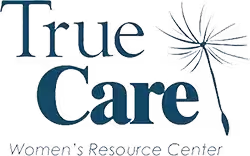The debate over whether abortion is linked to breast cancer continues. However, recent medical studies and reports document the strong likelihood that the correlation is not rare, but in fact, evident.
The American College of Pediatrics released a statement which said in part, “…induced abortion prior to a full term delivery, and prior to 32 weeks of gestation, increases the likelihood that a woman will develop breast cancer.” This risk is especially increased for adolescents. Another report issued by the same organization, says, “Increasing numbers of studies now show that IA (induced abortion) prior to 32 weeks in and of itself is a risk factor for breast cancer due to the physiology of breast development and the manner in which abortion interferes with the maturation of the breast cells.”
In 2013, Dr. Rebecca Johnson, a cancer specialist at Seattle Children’s Hospital, released the results of a study showing that the number of advanced breast cancer cases has increased among younger American women, those between 25 and 39 years of age. Dr. Johnson analyzed 34-years’ worth of data from several countries, including China, Romania, and India. The report on Dr. Johnson’s study explains the anatomy and physiology of the breast, helping women (and health care providers) understand why an induced abortion could be a strong factor in breast cancer, especially for women who have never given birth to a child.
The report also makes the case that abortion increases a woman’s chances for a future pre-mature birth: “During surgical abortions, the cervix is forced open and often injured, and the damage may weaken the cervix resulting in the premature delivery of future pregnancies.” This situation can also be a link to breast cancer. “Since premature delivery prior to 32 weeks also increases the risk of breast cancer, IA may further increase a woman’s risk by this mechanism,” the narrative states.
The doctor who wrote the commentary goes on to say, “Evidence suggests that IA (Induced Abortion) prior to a full-term pregnancy contributes to the high rates of breast cancer seen around the world. Although further study is warranted, this risk must be known… (and) All health educators should include this information in any health/sexuality education class in which abortion is discussed.”
No matter what your age, if you’re a woman considering abortion, or who has had an abortion in the past, do your research, find out your risks regarding breast cancer, and talk openly and honestly with your health care provider.
